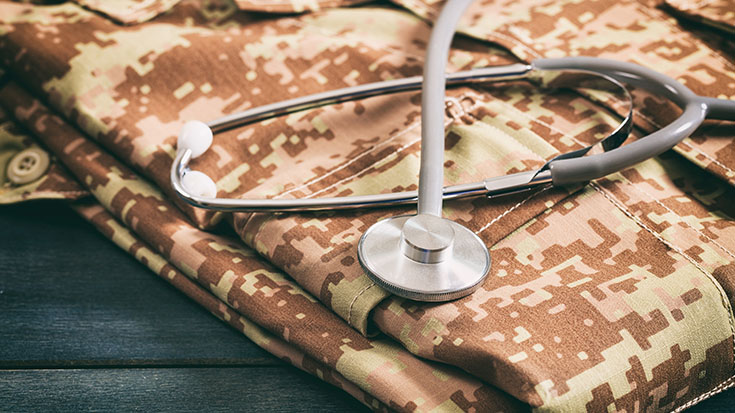
The paths that lead people to the respiratory care profession are vast and varied, but most people enter the profession one of two ways. Either they decide to enroll in an RC program right out of high school, or they find the profession later in life after becoming disenchanted with their current job or career path.
There’s another way, though, which carries with it not just service to the profession but also to the nation. HMC(SW) Christian Miranda, BSHS, RRT, is a great example.
In the following interview, he shares his experiences as a military RT and how he believes they have molded him into the kind of therapist who can rise to any occasion –
Which branch of the service are you in, and how long have you served?
Eleven years in the Navy and still currently serving.
What rank have you achieved, and where have you been deployed?
I am currently a Chief Petty Officer and have spent some time deployed to the Kunar Province of Afghanistan attached to the Combined Joint Special Operations Task Force, as well as some time in the Pacific and South China Sea on various ships with Fleet Surgical Team 5.
What roles have you played during your military service, and what are some of the most important things you learned through that service?
I’ve been a respiratory therapist since completing corps school and have spent time as a floor/shift RT, an instructor for the military RT program, and an en-route care/patient transport RT. One of the most important things I’ve learned is how to build confidence and remain calm as an RT and a vital part of the medical team, especially in high-stress situations.
Where are you stationed now, and how do you believe your military service has impacted your career?
I am currently stationed in San Diego on Fleet Surgical Team 5, serving as the Leading Chief Petty Officer as well as the sole RT on the team. I believe my military experience has truly helped with my communication skills and my ability to think critically, which are necessary for our roles as RTs, especially as part of damage control resuscitation teams or critical care teams.
What do you most want your fellow RTs to know about military RTs and why?
The quality of RTs we produce through our Interservice Respiratory Therapy Program in San Antonio, TX, is extremely high, and the soldiers and sailors are some of the most resilient and innovative critical thinkers across the RT community. Many Navy and Army RTs can spend the remainder of their military careers working in a wide range of areas, such as large hospitals and clinics, and in some cases, they may be put in some of the most austere environments an RT can ever be placed in, often times working alone as the only RT.
It is this exposure to a multitude of roles as an RT and being exposed to practically every role an RT can see which gives them such a unique skill set and value to the civilian RT community.
Want to network with military RTs and those who support their service? Join the Military community on AARConnect.





